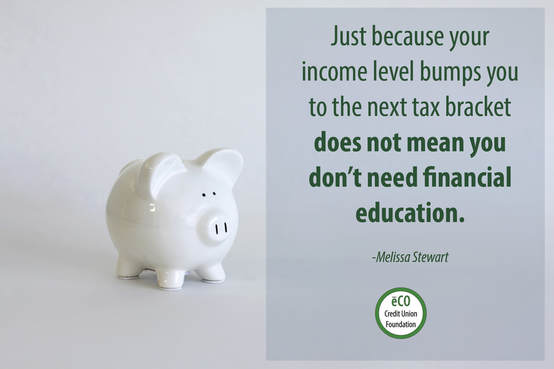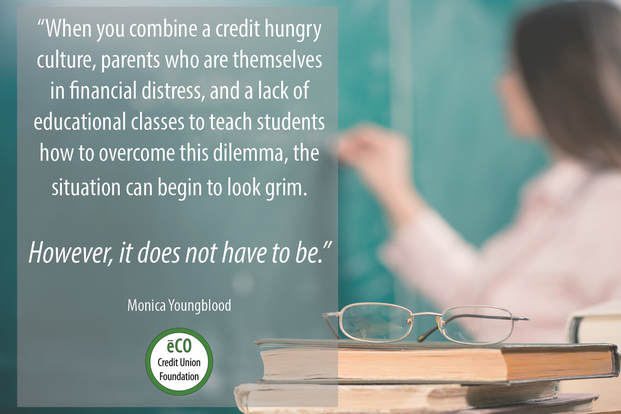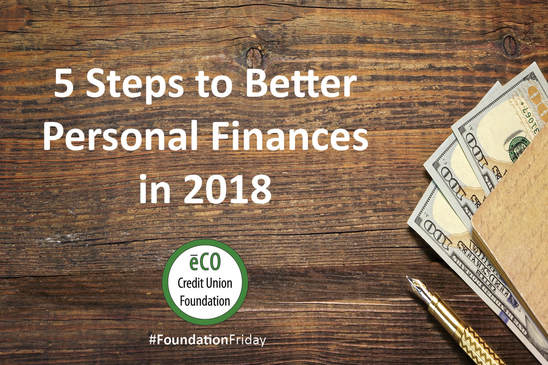|
According to 2017 research by the National Foundation for Credit Counseling (NFCC), only 40% of adults have a budget, and 80% of adults agree they could benefit from advice and answers to everyday financial questions. Who needs financial education? Is it only important for the poor? Or maybe just for the wealthy? It’s so easy to think that financial literacy is important for this group or that group, but in reality—it’s important for EVERYONE. And in our society, the knowledge gap can be seen in young and old, poor and rich, and male and female. Here are four reasons why financial education is important for everyone, regardless of their background:
Now that you know financial literacy is important for everyone, are you ready to improve your financial knowledge? We have a great solution for you! Over the next few months, we will be offering financial education seminars to provide relevant and practical information to our community. Click here to learn more about all of the classes and register. Sources: National Foundation for Credit Counseling, 2017 Infographics, https://nfcc.org/wp-content/uploads/2017/05/2017-FLS-Infographic.pdf Associated Press, Poll: Two-thirds of US would struggle to cover $1,000 crisis, http://www.apnorc.org/news-media/Pages/News+Media/Poll-Two-thirds-of-US-would-struggle-to-cover-$1,000-crisis.aspx Written by: Melissa Stewart
Melissa Stewart is a wife, pup-mom, and the Marketing Director at ēCO Credit Union. In her spare time, she enjoys spending time with family and friends, reading, and hunting for Rae Dunn.
0 Comments
Financial Literacy for adults has been talked about for years, but what about teens and children? Wouldn’t they benefit from learning how to effectively manage money? I believe the answer to that is a resounding YES! As a Business Math teacher, I feel there are several prominent reasons that financial literacy education is important for teens and children. 1. Buy Now – Pay Later Culture: Years ago, credit was a last resort and a thing of shame, but not today. Credit is almost seen as a rite of passage that is given to teens without teaching them how to maintain good credit. 2. Many Adults in Debt: Contrary to what we wish, children do not do as we tell them, but do as we do. If the adults in their lives are not good money managers, they will likely follow the same path. Someone needs to show them how to manage their money for their benefit. 3. Schools Don’t Teach It: Over the past twenty-five years, many public-school systems have done away with their financial literacy classes to make room for other educational opportunities that do not focus on finances. The deficit has recently been recognized and these classes are being reintroduced. 4. They Will Grow Up: More quickly than we parents would like to think about, our children will grow up and have to make financial decisions of their own. It would be such a disservice to send them on their way without equipping them to be financially successful. When you combine a Credit Hungry culture, parents who are themselves in financial distress, and a lack of educational classes to teach students how to overcome this dilemma, the situation can begin to look grim. However, it does not have to be. Here are a few things you can do now to help prepare your children and teens to be good money managers: 1. Be Intentional in Teaching Them: Even very small children are able to grasp financial concepts, such as, deciding on a small box of cereal or a large box that costs the same. As children mature, include them in other financial decisions of the household such as making the decision to go to the movie theater as opposed to renting a movie and staying in to save money for vacation. 2. Make Them Earn It: Instant gratification is much more appealing than saving and waiting; however, earning something changes its value. Sometimes waiting seems a punishment, when in reality you are helping your child learn a life lesson. If your children are like mine, they are used to getting stuff, and I will find it is not taken care of. When they have worked to earn something, it usually has a special place in their room and is not mistreated. They take pride in knowing they earned it. 3. Teach Them the Value of Saving: This goes hand in hand with the point above. Explain to your child how you save and how they can also save. Many financial institutions have youth programs and some even offer monetary rewards for good grades. (We know a great one that happens to be an eCO CU Foundation sponsor (embed link: https://www.ecocu.org/products/youth-accounts/) Help your child set a goal or find a specific toy they would like to save for. Children are very visual, so setting up a chart or a money jar is helpful. 4. Giving: I know it sounds like a contradiction, but teaching your child about giving to those in need or a specific cause will help your child see a new side to money management…helping others.Technology offers many wonderful resources for working with your teens and children. Here are a few that I rely on:
*The ēCO Credit Union Foundation does not claim to endorse any of these brands or people. Written by: Monica YoungbloodMonica Youngblood is a high school teacher at Cornerstone Christian School in Columbiana, AL. She was a 2017 ēCO Credit Union Foundation grant winner and excels in teaching each student that comes through her classroom about personal finance. We’re almost two weeks into 2018, and I bet at least a few people reading this will have already given up on their New Year’s resolution. Why is it that every January every parking space at the gym is taken but by February it’s back to the usual crowd? Why is that that we get burned out or misguided in the process of aggressively attacking our goals? I have some ideas… 1.Quit planning to fail. I am a firm believer in the overused quote that says, “if you fail to plan, you plan to fail.” Go ahead and get that eye roll out of the way; then, think about the last time you gave up on a goal. Why did you give up? Did friends invite you out to eat on a diet, and you just couldn’t eat a salad in a pizza place? (But really, that’s torture.) Did you have an unexpected medical bill come up, and it threw the account completely off course? In those situations, the outcome could have been a lot a different if planning had happened beforehand. Research some apps that would help you plan your goals and track your progress. Or, just get out that good ole pen and notebook. 2.Never stop getting back up. Successful people do not give up when they are knocked down; they just keep getting back up (think: Rocky-style)! We have to accept that life WILL happen when we are trying to accomplish big goals, and we have to roll with the punches. Bill Gates dropped out of Harvard, ran a failing business, and then became the biggest self-made millionaire years later. Thomas Edison tried 1,000 failed attempts at inventing the lightbulb; I’d say waiting until that 1,001 was a good idea. And, my personal favorite, Walt Disney was fired from a Missouri newspaper for “not being creative enough.” The moral to this story is to not let ONE bad decision lead to a year of bad decisions. That doesn’t make sense! Instead, accept when you fail at your plan, and then, look at the next day as a fresh start. I promise you that the most successful person you know has fallen at minimum once a month; it’s what they do the next day that defines who they are! At the ēCO Credit Union Foundation, we want 2018 to be the year for financial success! Not only are we offering free financial seminars from January to April, but we are also offering a goal tracker to start planning not to fail. Just click the downloadable PDF below, and start planning away! “When you believe in a thing, believe in it all the way, implicitly and unquestionable.” -Walt Disney
“I don’t believe in New Year’s resolutions.” Has anyone else been hearing this lately? Keeping a resolution has nothing to do with calling it a “resolution”, but it has everything to do with our self-discipline, accountability, and motivation. Call it what you want; the outcome is on YOU. We are here to encourage everyone to challenge yourself in 2018, whether you call it a goal, resolution, or nothing at all (you do you). And in the spirit of challenges, there is no better time to make financial goals than the beginning of the year; you have a fresh slate to plan from. Here are 5 simple steps to cleaning up your personal finances in 2018: 1.Track every expense. Why do you think Weight Watchers works well for so many people? There is an obvious change in thinking when tracking each and every ounce of food. Is it easy? Heck no! It’s hard work. In the beginning of cleaning up your finances, it is important to understand just how many unnecessary & necessary transactions are going out of an account on a monthly basis. And, thanks to the internet, every free resource in the world is at your fingertips to help make life a little simpler! 2.Create a debt plan. Next up, write down all of your debts- everything from your credit cards bills to your auto loan. There are two things to consider. First, check out your interest rates. Most likely, the credit card rates are in the double digits. Consider visiting a financial institution (we know a great one) that has low interest rates on credit cards where you could transfer your high-interest balances to one low interest rate. Next, consider how much debt you can handle paying off monthly. Then, decide what method will be used. A debt snowball will be paying off the smallest debts first; a debt avalanche will pay off the highest interest first. Once again, there are many resources online for both of these concepts to research more. 3.Save more. We can all push ourselves a little more. Could you save 15% of your income? It would be a push, right? But, do the math on how much you will save with 15% in an account; trust me, it will be a great motivation! Saving more will not only prepare you for emergencies, but the cash on-hand will help you stay out of debt. 4.Cash only. I have heard a parent say to their child that they don’t have enough money to pay for a toy. Do you know what the child said in response? “Just swipe your card, Mommy.” Once again, part of cleaning up your finances is a mental game. Watching the cash leave your wallet will be much more impactful than continually swiping a card. 5.Accountability partner. You can’t do this alone. Find a partner. If you’re married, congratulations! You have a built-in accountability partner. If you are not married, find a trusted friend, parent, or co-worker that will check in with you. Intentionally choose someone that prioritizes their personal finances, too. If you are looking for even more help with your personal finances, the ēCO Credit Union Foundation is hosting a financial seminar on the morning of January 27 at the Hoover Public Library. Mark your calendars for a great (& free!) event to learn everything you need to know about your finances and how to start your budget! Like us on Facebook, and then browse through our events coming up to find out more. (Registration is requested.) Written by: Georgia HuxGeorgia Hux is the Marketing Coordinator at ēCO Credit Union. She is wife to Aaron, fur-mom to Tuff, and thinks Joanna Gaines is her best friend. |
|||||||







 RSS Feed
RSS Feed